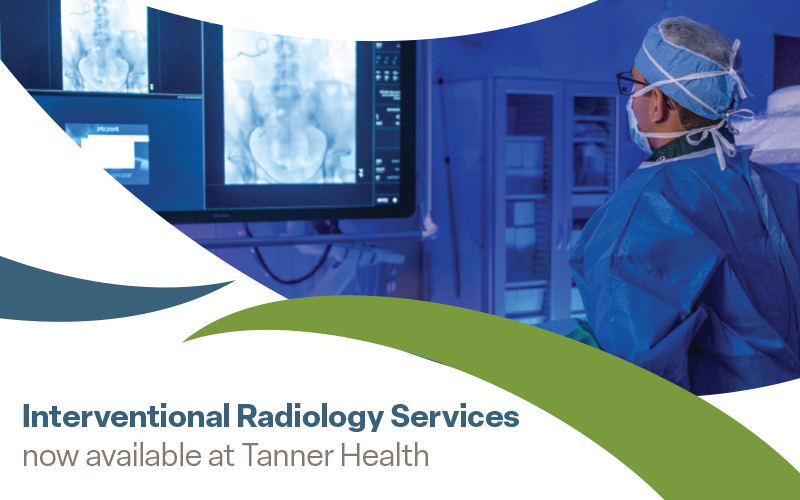What is interventional radiology?
Using advanced imaging techniques like X-rays, CT scans and ultrasounds, our interventional radiology team can diagnose and treat a range of medical conditions and perform minimally invasive and non-invasive procedures with precision accuracy, including complex microscopic vascular procedures performed through keyhole-sized incisions, tumor and cancer biopsies and more.
Are there benefits to interventional radiology?
Interventional radiology treatments and procedures are generally less
invasive, carry fewer risks and require less recovery and downtime than
traditional surgery.
With smaller incisions and better imaging, patients recover faster, experience less pain, and return to their lives sooner.
Some common procedures that use interventional radiology include:
- Angioplasty
- Stent placement
- Embolization
- Biopsies
- Tumor ablation
- Drainage procedures
- Vascular conditions (deep vein thrombosis)
- A range of non- and minimally invasive surgeries
Image-guided procedures. Pinhole precision. Stronger recoveries.
Our interventional radiology team offers specialized treatments across multiple medical disciplines:
Oncology Services
- Tumor embolization procedures for liver, kidney and musculoskeletal cancers
- Chemoembolization and Y-90 radioembolization therapies
- Advanced ablation techniques, including cryoablation and microwave ablation
Urological Procedures
- Nephrostomy tube placement and maintenance
- Nephroureteral tubes and ureteral stent management
- Prostate artery embolization for BPH symptoms
Gastrointestinal Interventions
- Biliary drain placement and maintenance
- Biliary stenting and dilation procedures
- Emergency embolization for GI bleeding
- Gastrostomy and gastrojejunostomy tube placement
Women's Health
- Uterine fibroid embolization
- Treatment for postpartum hemorrhage
- Ovarian vein embolization
Pain Management & Spine Care
- Kyphoplasty for vertebral compression fractures
- Targeted spinal injections
- Facet joint treatments
Vascular Procedures
- Port placement with moderate sedation
- IVC filter placement and removal
- Treatment for SVC syndrome
- Emergency embolization for trauma and bleeding

Patients seeking more information about Interventional Radiology
services should speak with their primary care physician or specialist
about a referral.